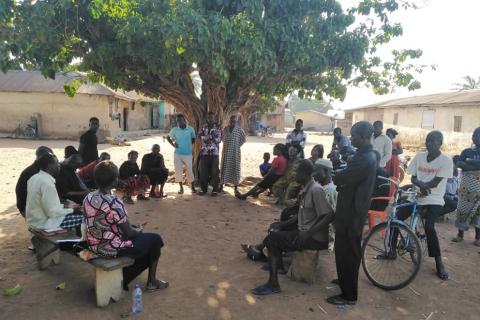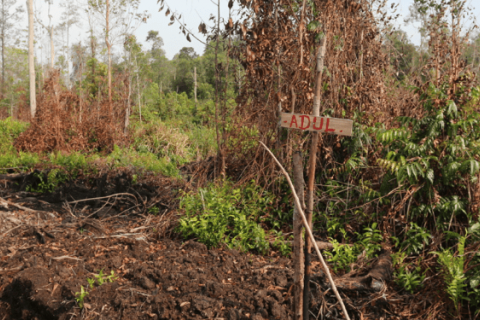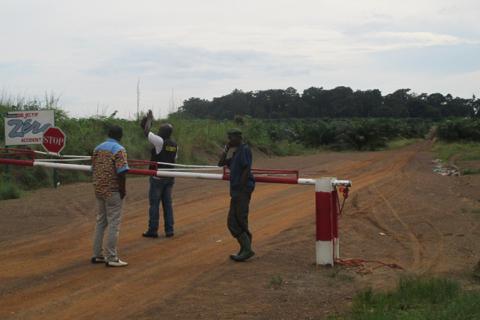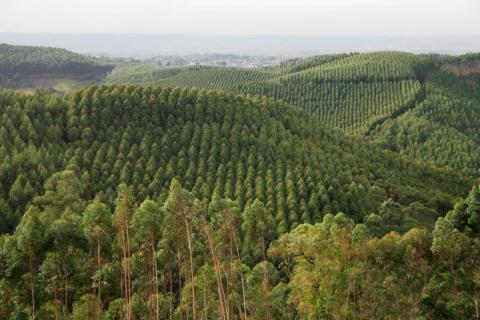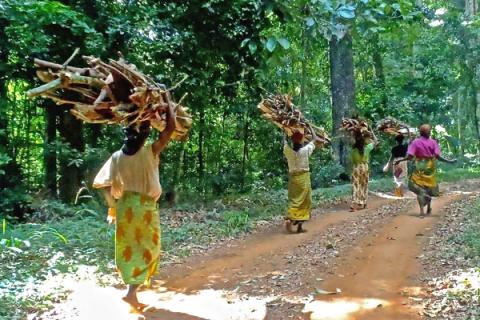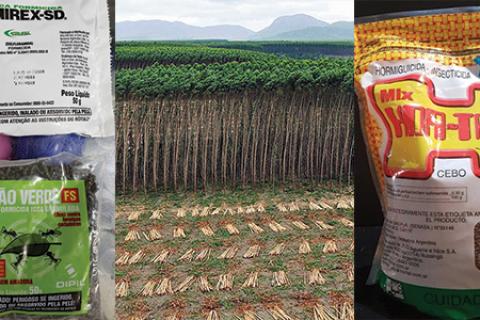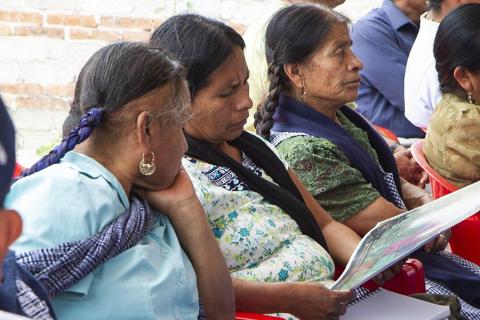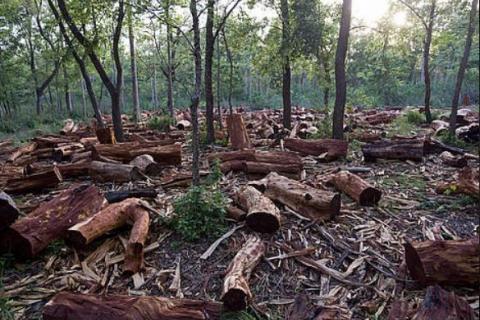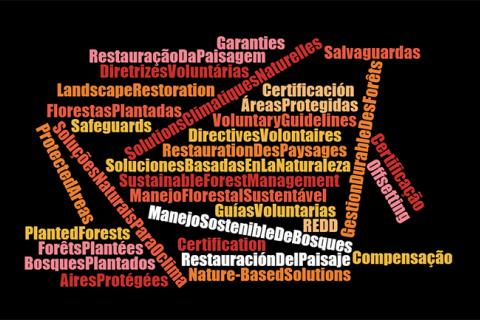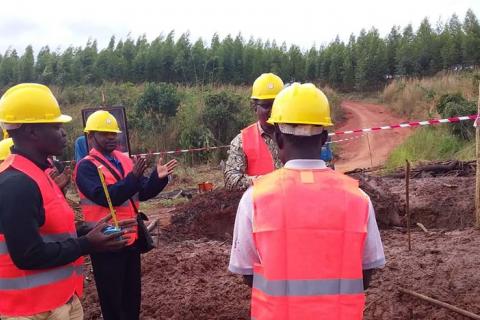This editorial aims to raise a high alert with regard to the corporate agendas that dominate international forest-related processes, which appear to be entering new phases. The decisions taken have very real impacts on forest communities.
Bulletin articles
The Norwegian company APSD is establishing industrial eucalyptus plantations in Ghana for biomass fuel, which is considered a "carbon neutral" fuel. The Youth Volunteers for the Environment in Ghana spoke with communities affected by these plantations.
Oil multinational Shell claims that it is possible that consumers drive “carbon neutral”, simply by paying extra for offsetting their emissions - planting trees or investing in existing forest areas elsewhere. But what is happening in those areas elsewhere? (Available in Indonesian).
What are the experiences of communities living inside or adjacent to the plantation areas of companies with “zero deforestation” pledges? How can these companies continue expanding without deforesting in densely forested countries?
After more than 50 years of struggle by peasant communities who have faced all kinds of environmental and social destruction, the highest court of Cauca Valley has ruled against the industrial plantation company, Smurfit Kappa Cartón Colombia.
Plantation companies often argue that local populations are destroying the forests, particularly where people depend on firewood and/or charcoal for their energy needs. Thus, they argue, industrial plantations can “sustainably” provide this wood. But this is simply not true.
One of the latent dangers that comes with the establishment of monoculture plantations—which is generally invisible—is the high use of agrochemicals. Agrochemicals support profits for plantation companies and their financiers, while poisoning life.
Women’s struggle for full and dignified recognition of their lives and territories starts with not allowing the extractive model to progress. However, it must be resolved by the need for women to be able to make decisions to strengthen collective political control.
The contradictions between the ideals of concepts that originate from within international policy arenas and their implications for forests and forest peoples are clearly evident.
Language is never neutral. Certain concepts have historically been used to dominate people and territories. This article highlights concepts that are usually presented in a positive light but that actually serve economic interests that harm forests and communities.
While it was easy to see the smoke from the forest fires in Brazil, it was much harder to see what was behind the Brazilian government’s smokescreen: actions that will lead the rainforest to a swift death, destroying territories, livelihoods and the diverse cultures.
The company, Portucel, considers its thousands of hectares of plantations in Mozambique to be “sustainable,” despite serious problems and conflicts with and among local communities.

